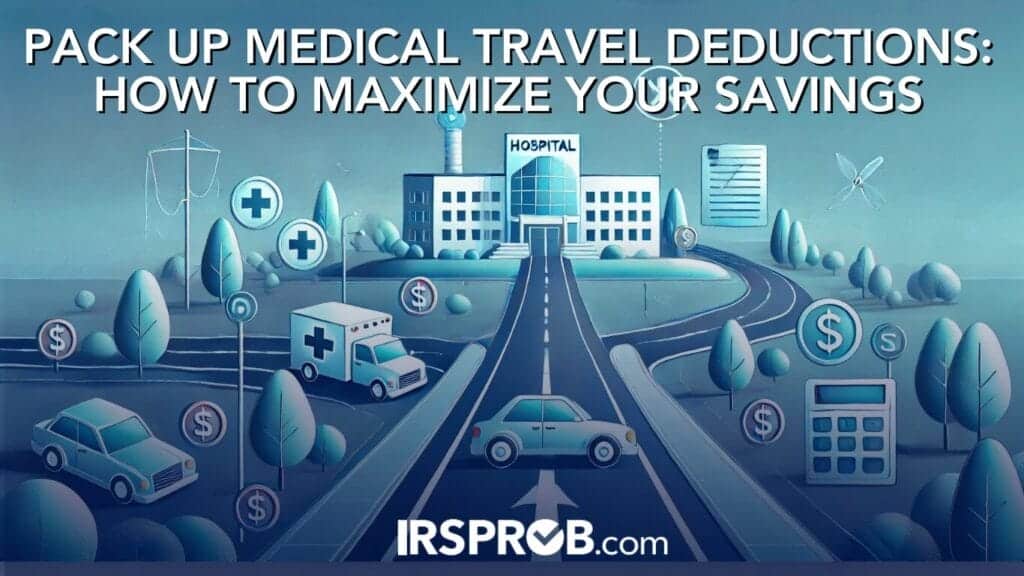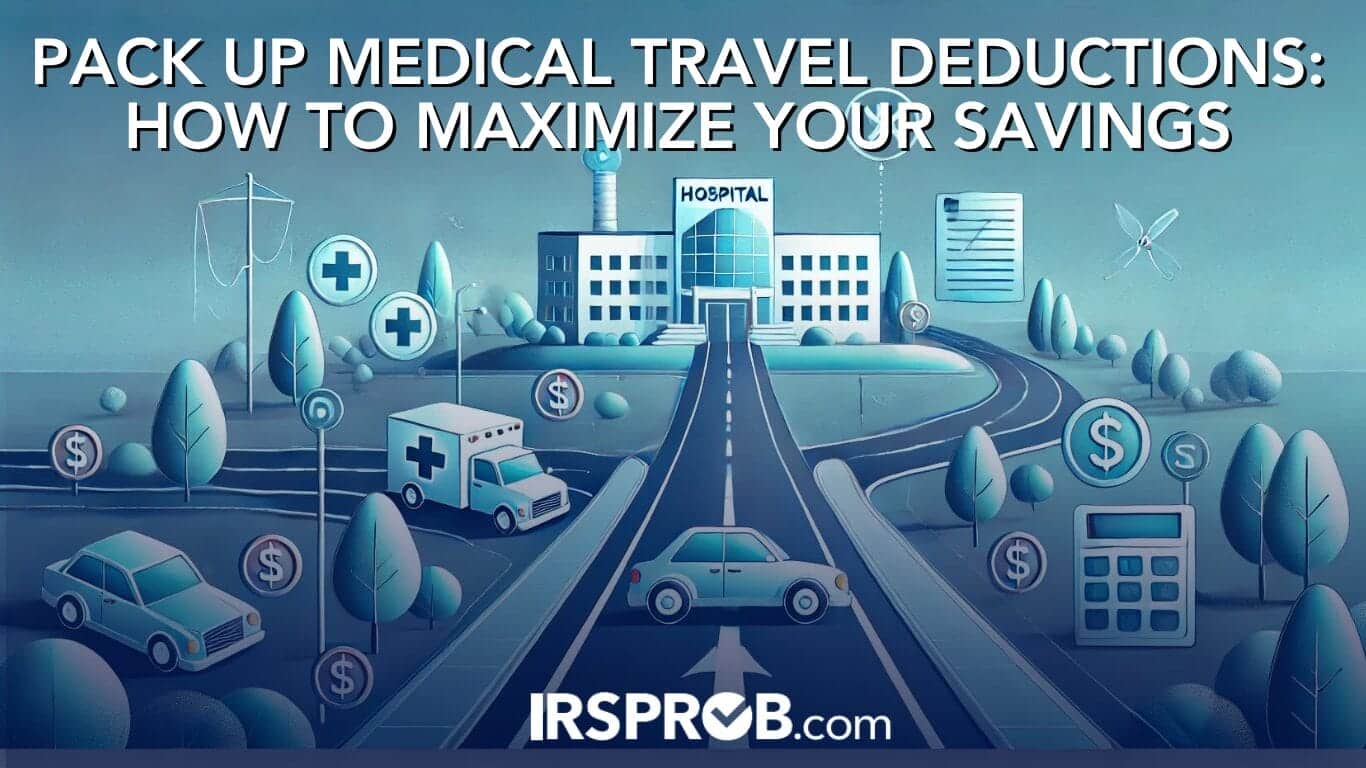
When managing your personal or business finances, every deduction counts. Medical expenses are one area where careful planning can lead to significant tax savings. If you or your dependents require medical treatment, you might already know that certain medical expenses can be deducted if you itemize your deductions. But did you know that travel expenses related to medical care can also be deductible?
Understanding the Medical Expense Deduction
For 2024, if you itemize your deductions, you can deduct qualified medical expenses that exceed 7.5% of your adjusted gross income (AGI). Qualified expenses include payments for the diagnosis, cure, mitigation, treatment, or prevention of disease. This includes hospital stays, prescription drugs, and even travel expenses incurred while seeking medical treatment.
What Travel Expenses Can You Deduct?
The tax code allows you to deduct a wide range of travel expenses related to medical care, even if similar treatment is available closer to home. Here’s how you can take advantage of this:
- Transportation Costs: Whether you travel by plane, train, bus, taxi, or even your personal vehicle, these costs can be deductible. For example, if you choose to travel across the country to a renowned facility like the Mayo Clinic, the cost of your transportation is deductible.
- Travel for a Companion: If the person receiving treatment requires a companion, such as a parent for a minor child or a caregiver for an elderly or disabled individual, the companion’s travel costs can also be deducted. Interestingly, this companion does not need to be a relative or a healthcare professional, making this deduction quite flexible.
- Lodging Expenses: Lodging costs while traveling for medical care are deductible up to $50 per night per person. This applies to both the patient and the necessary companion. For example, if you and your child need to stay near a medical facility overnight, you could deduct up to $100 per night.
- Visiting a Mentally Ill Dependent: If you have a dependent who is mentally ill and visiting them is part of their recommended treatment, the cost of these visits can also be deducted. This is particularly beneficial for those who need to regularly visit a dependent in a treatment facility.
- Mileage Deduction: If you drive your car for medical purposes, you can deduct your actual travel expenses or use a standard mileage rate of 21 cents per mile for 2024. Don’t forget that you can also deduct related tolls and parking fees.
Key Tips for Maximizing Your Deductions
To ensure you’re fully benefiting from these deductions, keep detailed records of all your medical travel expenses. This includes receipts for transportation, lodging, and any other associated costs. Good record-keeping is crucial, especially if you’re audited by the IRS.
Also, remember that while these deductions can add up, they only apply to the extent that your total qualified medical expenses exceed 7.5% of your AGI. For instance, if your AGI is $100,000 and you incur $9,000 in qualified medical expenses, you can only deduct $1,500 ($9,000 – $7,500).
Final Thoughts
Travel-related medical expenses are an often-overlooked area of potential tax savings. By understanding what is deductible and keeping meticulous records, you can significantly reduce your taxable income. This is particularly important for business owners who might incur substantial medical costs, either personally or for their dependents.
By maximizing these deductions, you ensure that you’re not leaving money on the table. As always, consult with a tax professional to tailor these strategies to your specific situation and ensure compliance with IRS regulations.









